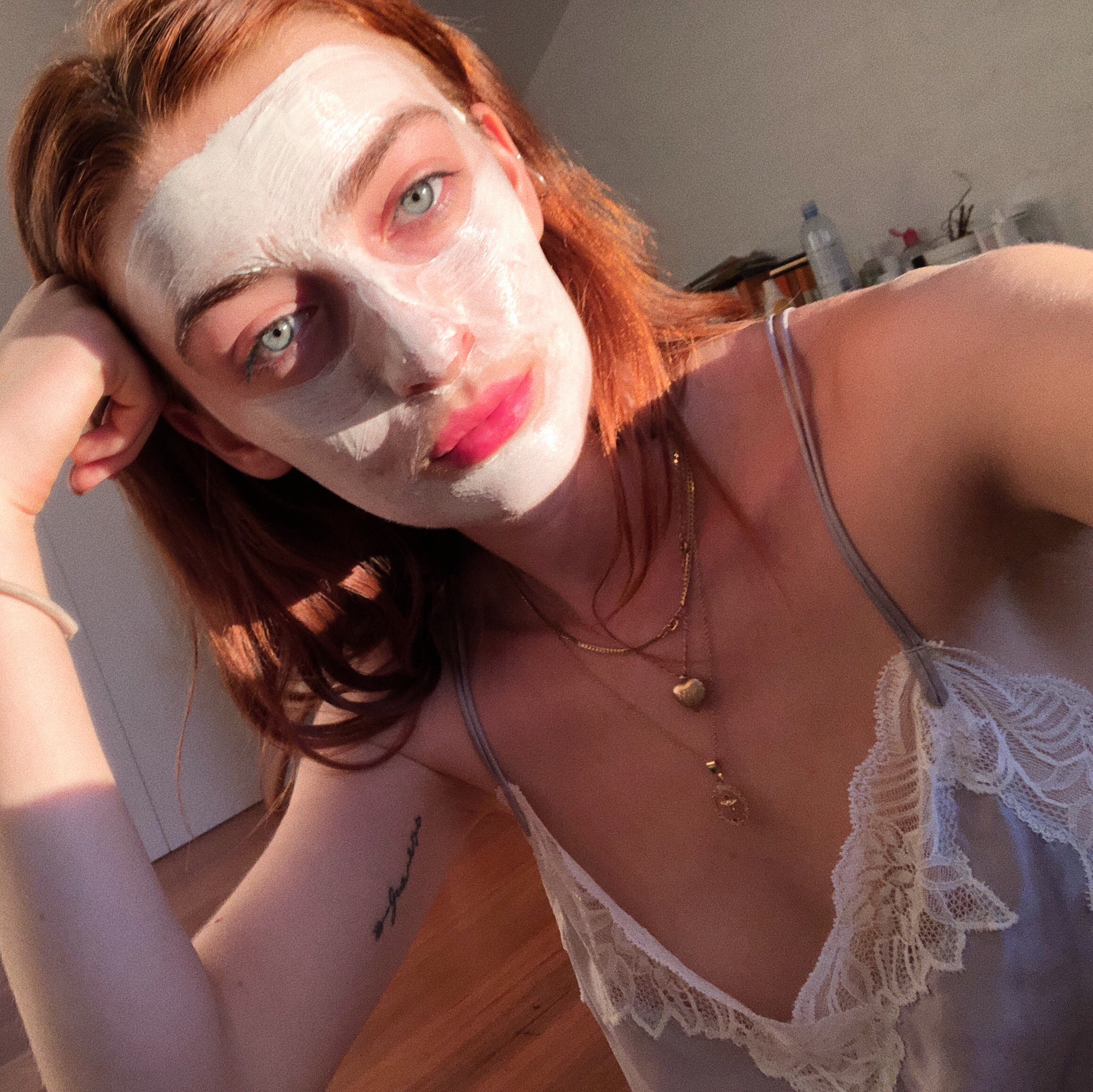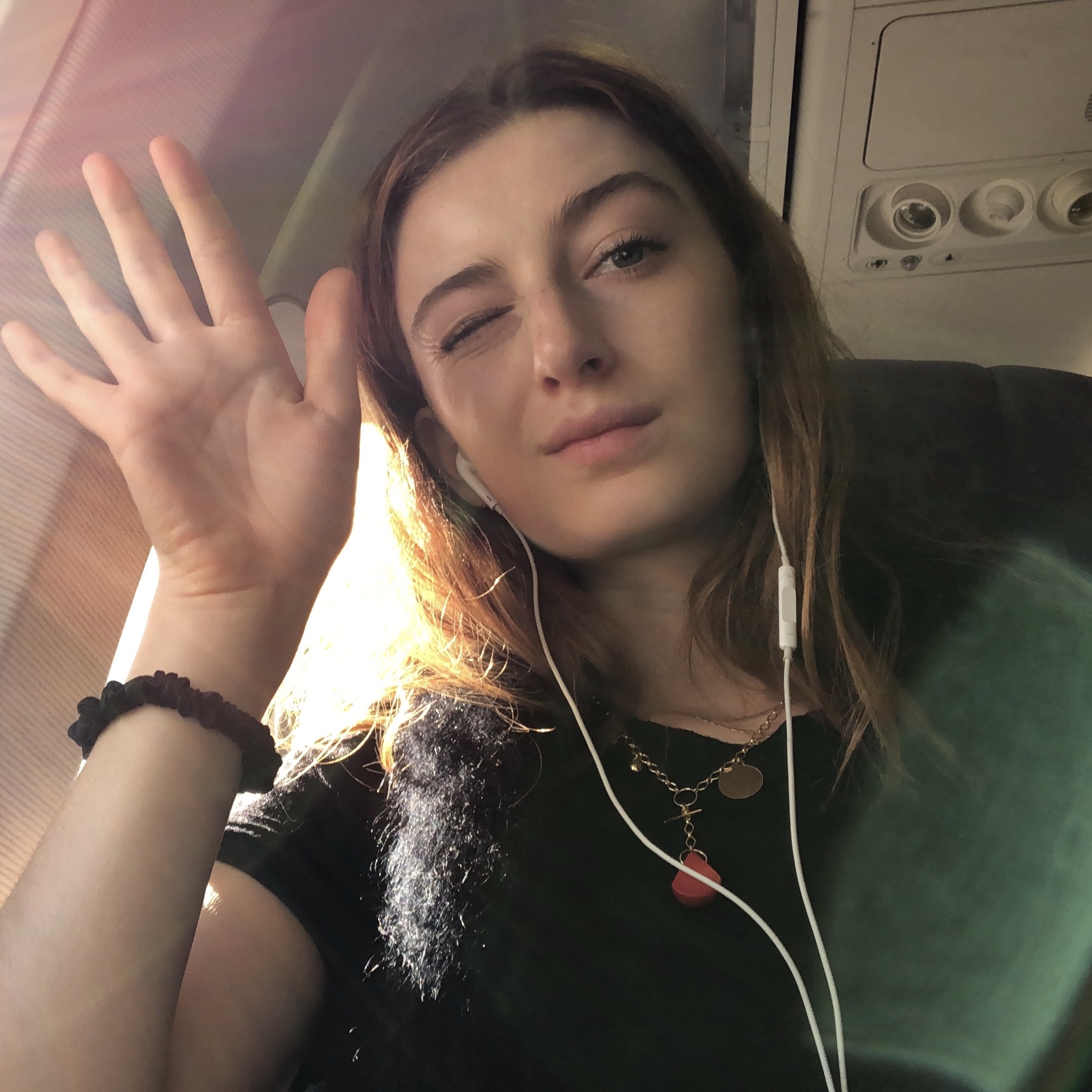Sometimes, Salicylic Acid and a lot of water doesn’t cut the mustard when it comes to treating acne. I went on Roaccutane when I was 18 years old, post-many attempted solutions – read: herbal and homeopathic remedies, veganism, facials, topical prescription creams, birth control – the works. My skin flared up again, and again, and my patience unlike my acne dissipated. I decided with my dermatologist, Dr. Sharad Paul, after at least a month of endless questions, blood tests, evaluations and skepticism to go ahead and start taking a low dosage of Roaccutane for the estimated period of four months, which turned into six months as the course progressed.
Basically, for those who have no idea WTF I’m talking about, Roaccutane (or Isotretinoin) is a vitamin A based drug which works to reduce oil production from the sebaceous glands which block pores. Roaccutane is only prescribed for severe cases of acne or scarring acne – which is what was going on for me – as it can have some pretty nasty, well documented side effects.
There is a plethora of information, warnings, and requirements for Roaccutane. And the google rabbit hole is bottomless. This is my first-hand account in hope that it brings even a little bit of solidarity or new information to someone who is on, or considering taking a course of Roaccutane.
The dryness thing:
This is one side affect that I’m almost certain everyone experiences, however in different capacities. My skin went through different periods, and it took me awhile to figure out what worked for me in order to combat it the best way I could.
For face: La Roche Posay Cicaplast Baume B5, this stuff is actually a barrier cream, but was the only thing thick enough to keep my skin comfortable and makeup not looking instantly cakey, it also has antibacterial properties so I never felt like I was fueling the fire.
For lips: Sunspirit Calendula Ointment, this saved my lips life. Forget Vaseline, Aquaphor, Blistex etc. I was able to use calendula ointment about 5 times a day (compared to 100 times a day, when using other lip products).
For Body: Cetaphil Intensive Moisturizing Cream, v. basic and v. cheap, but when you’re using as much as you need to on Roaccutane, it’s a necessity. I also found that my skin was so sensitive that any rich, luxe, and scented body oils / creams only caused irritation.
Sun Protection: SPF 50+ is your safest bet all round. I used Dr Jart+ Sun Fluid SPF 50+ every day on the face and body, this is light and watery, I still use it every day.
It almost always gets worse before it gets better:
This was really real for me. I went from having sort-of-crap skin, to having painful acne that didn’t subside until I was over three months into my course. This is the purging process, it’s different for everyone, and most certainly the worst part. Feeling like you’ve made such a big decision to take a serious drug which is supposed to clear everything up, and three months in there’s no results, is completely frustrating. That’s when it gets really fucking tough, and the only thing to do is wait, because in three more months you won’t even be able to FIND your pores
In a glass cage of emotion:
One of the more alarming side effects of Roaccutane, is that it has been linked to depression and suicide. There is no definitive link between Isotretinoin and depression, however, as we know: acne is very capable of causing low mood and problems with self-esteem. [insert girl with hand up emoji, here]. Before Roaccutane gave me a complete glow-up, my self-esteem has never been worse than the first few months I was on it. I speak in jest, but this is a very serious, very real issue, whether it be linked to the cause or solution.
I never wanted to leave the house, but when I stayed at home I spent hours dwelling on it, result: vicious cycle. My simple advice here: formulate a strong support group of loved ones from the get go, so that when you’re having tough days, you have people who will support you, tell you it’s not as bad as it seems (because it isn’t), and tell you that it is 100% going to be okay, you will come out the other end, and hindsight, is an incredible thing once it’s all over and the traumatic, vitamin-A-dust has settled.
If you are feeling alone, know that you’re not. You can call Life Line on 13 11 14 or at
www.lifeline.org.au
The aftermath:
Up until now, I approached the subject of Roacctuane in person with curiosity and open-ness re: my experience, however, online is different. I’ve re-written this article no less that 4 times over the course of a year. I often felt that I was having to tread lightly around the topic, for personal reasons and fear of being either too blasé, or too intense and scary. I once posted on my private, underground Instagram account that ‘I tell media that my skincare routine is all ‘easy, peasy, lemon squeezy’ when really it was just ‘hard, hard, Roaccutane hard’ when I was 18’. That’s exactly what is was for me, fucking hard, sensitive to talk about, and painful. However, well worth it, in my case.
Gaining the confidence back that had been debilitated across so many years of awkward adolescence was like exhaling a breath I wasn’t aware I was holding. The most important takeaway for me, was forming a good, open and trusting relationship with my dermatologist. If you listen to them, ask questions, give yourself perspective, don’t shut your loved ones out, be kind to yourself through a process which, on many days will make you feel like an unworthy toad, you will be okay. I promise.
Words: Ella Jane


